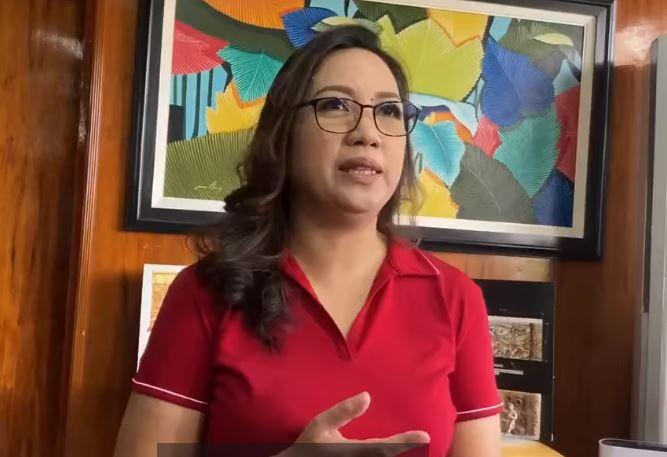Garin: Renaming DOH won't make any difference

Adding the word wellness to the name of the Department of Health will not make any difference, House Deputy Majority Leader and former Health secretary Janette Garin said Thursday.
Garin was responding to the move of Health Secretary Teddy Herbosa to rename DOH as Department of Health and Wellness which will be led by the Chief Longevity Officer, now known as the Health secretary.
“It will not make any difference. Mas maraming malaking problema ang DOH na dapat pagtuunan ng pansin,” Garin told reporters.
“[Also] because wellness is actually a part of health,” she added.
In addition, the lawmaker said the name change will mean additional expenses for the DOH which will not necessarily translate to improved health services.
“Okay naman ‘yan but you cannot say that it does not entail cost. Magpapalit ka ng logo, from the central office, sa lahat ng ospital, hanggang sa pinakamababang [health] units of government,” Garin said.
“It is okay if the impact will really be great in terms of public health, pero hindi naman eh. Changing the name could be okay but it will not really make a difference,” she added.
Herbosa on Wednesday admitted that his proposal would indeed be costly, but said that it is still being studied.
“Ang problema sa pagpalit ng pangalan, mahal ‘yan. Gastos ‘yan. Papalitan mo ‘yung logo, ‘yung letterhead, ‘yung mga emblem sa mga sasakyan, sa buildings,” the Health secretary said in an interview on state-run PTV.
(The problem with changing the name of an agency is that it's expensive. It would be costly. You have to change the logo, the letterhead, the emblems on the cars and on the buildings.)
“Gagastusin ko na lang siya sa panlaban sa dengue,” he added.(I'll just spend it on efforts to fight dengue.)
Herbosa explained that he made the suggestion in line with the DOH’s push for primary care under the Universal Health Care law. He said that he wants to promote to the public how to be healthy themselves, and how they could be able to maintain their wellness.
For her part, Garin said the DOH should instead address the rising number of dengue cases in the country, including boosting vaccine confidence.“A lot of people say that dengue can be addressed by killing mosquitos and keeping the surroundings clean, but the World Health Organization (WHO) has repeatedly said, for decades, that there are not enough because mosquitos evolve faster than we can kill them,” she said.
“Any vaccine that is demonized will transfer to other vaccine-preventable diseases. Moving forward, we need our people to be more informed about vaccines. Any vaccine that is approved by WHO, accredited by FDA and laboratories, then it should be available to the public,” Garin added.
Herbosa earlier said that an anti-dengue vaccine may be approved within the year.
In 2015, the Philippines became the first Asian country to approve the sale of the world's first-ever dengue vaccine—Dengvaxia.
However, a controversy arose in 2017 after manufacturer Sanofi Pasteur announced that Dengvaxia may lead to “severe” symptoms for those who have never been infected by dengue before vaccination.
Sanofi Pasteur’s announcement, however, only came after the vaccine has already been administered to over 700,000 children and policemen.
There were at least 100 individuals who died after receiving the Dengvaxia vaccine, but health officials have ruled that their deaths cannot be directly linked to the vaccine.
Without admitting any wrongdoing, Sanofi returned P1.16 billion to the Department of Health for the unused doses of the vaccine.—AOL/RF, GMA Integrated News




